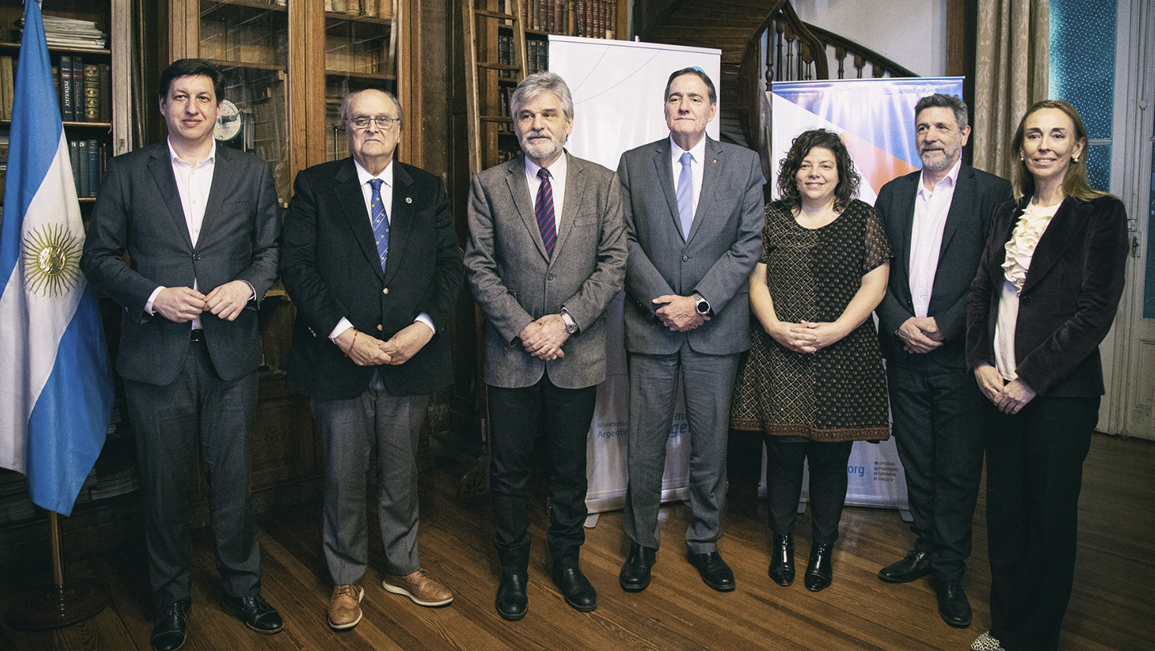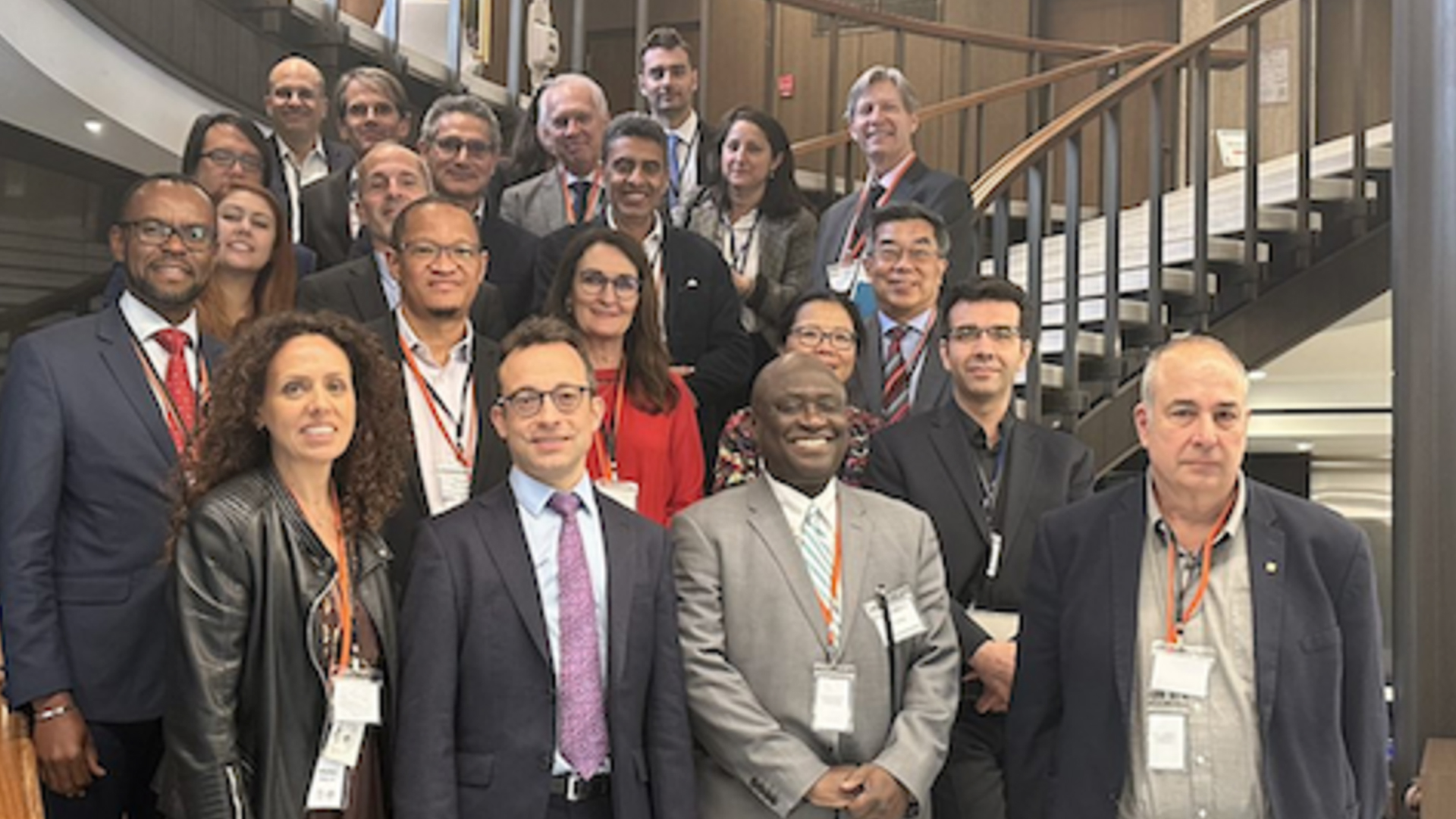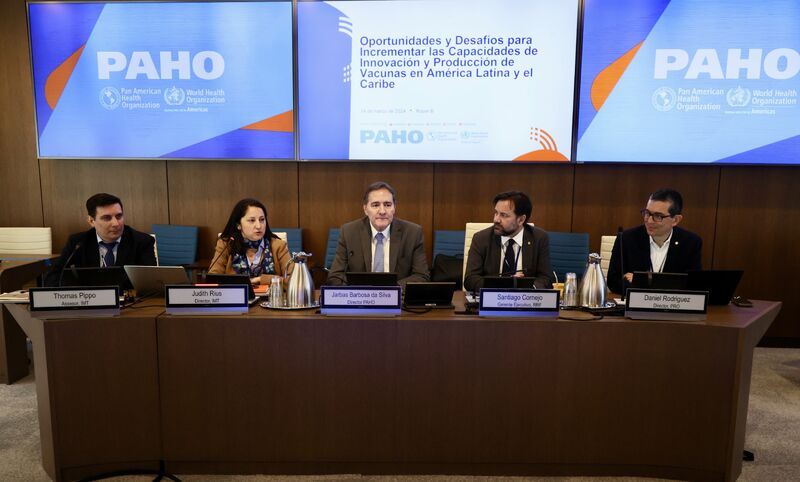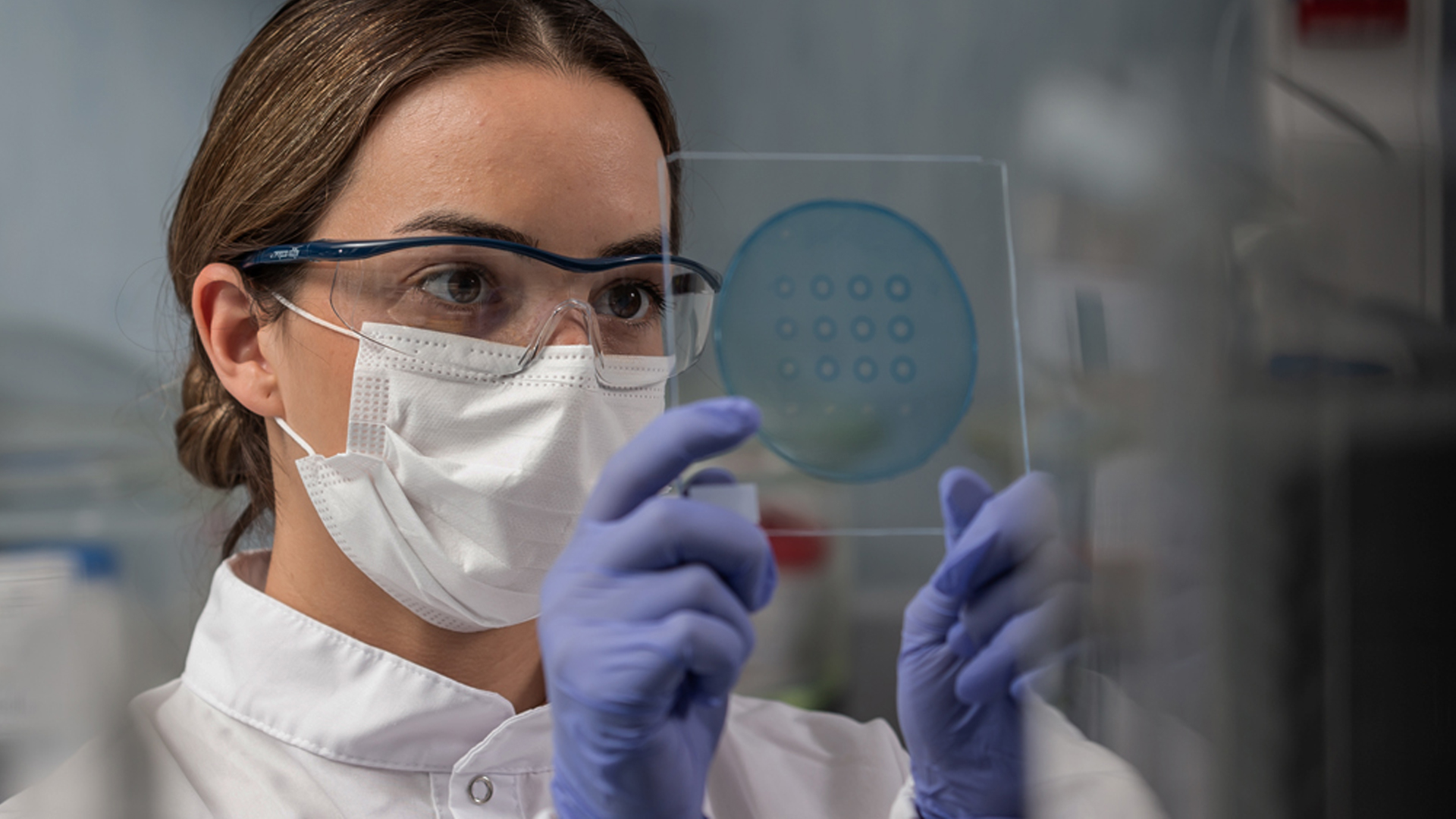Furthermore, as part of the official visit of the PAHO director to Argentina, Vizzotti led a meeting with him together with authorities from ANLIS Malbrán, ANMAT and ANLAP in which they worked on axes prioritized by the national government on health research and development.
Within the framework of a high-level meeting with the director of the Pan American Health Organization (PAHO), Jarbas Barbosa da Silva, to address the national health research and production policy and the experience of Argentina’s incorporation into the HUB for the transfer of technology from the WHO, the Minister of Health of the Nation, Carla Vizzotti, signed a technical cooperation agreement between the portfolio she directs, the National Administration of Laboratories and Health Institutes (ANLIS) “Dr. Carlos Malbrán”, the National Agency for the Promotion of Research, Technological Development and Innovation (R&D&I), the biopharmaceutical company Sinergium Biotech and the PAHO with the aim of strengthening and increasing vaccine development and production capacities and other quality, safe and effective health technologies in Argentina and the Region of the Americas.
“It is extremely important that Argentina has been selected along with Brazil to carry out the technology transfer of a messenger RNA vaccine,” highlighted Vizzotti, while maintaining that “after a long year of work together with the R&D+ Agency “i, the Malbrán Institute, the Ministry of Health and a private production plant reached the signing of this agreement that will allow us to advance with equipment, strengthening and the transfer of the necessary technology to benefit the region.”
“With this agreement we are strengthening the mRNA vaccine production ecosystem and giving greater sustainability” to the PAHO/WHO technology transfer project in Argentina, stated the director of PAHO/WHO, Jarbas Barbosa. In addition, he added that the future development of these vaccines in the country “will help reduce the region’s external dependence on this technology and move towards more equitable access.”

In turn, the Minister of Science, Technology and Innovation, Daniel Filmus, highlighted that the vaccine “represents a before and after for the history of clinical studies in our country because it is the first time they have been carried out with our own vaccine. For us, it is also very important not only the possibility of substituting imports but also the ability to export, for which we have already started conversations. The ARVAC-Cecilia Grierson vaccine is also a successful case of public-private coordination between the Ministries of Science and Health, the R&D&I Agency, the National University of San Martín (UNSAM), CONICET and the laboratory. “Cassara.”
The R+D+i president, Fernando Peirano, stated that “Argentina has guaranteed and universalized the right to health and this can also be a good engine to value our industrial capacity, our scientific capacity to develop new solutions and it is That is why we have been accompanying the process. This agenda must aim to reach the ultimate consequences, which is neither more nor less than becoming a new treatment or a new health solution.”
Finally, the Secretary of Industry and Productive Development, José Ignacio de Mendiguren, highlighted that “for Minister Sergio Massa the articulation between science, health and industry is fundamental to consolidate a development model centered on import substitution and greater presence of Argentine work and innovation in the world.” And he added: “Something that the pandemic taught us was the importance of that synergy, which is why from the Ministry of Economy we have specific financing and development plans, in absolute coordination with the ministries of Health and Science, so that all these efforts are sustainable.”
It is worth remembering that in 2021, the WHO carried out a global call for expressions of interest in which manufacturers and public and private research institutions were invited to contribute to the establishment of technology transfer centers for messenger RNA vaccines against COVID-19. 19 in emerging economies. In this context, for the development and production of mRNA vaccines in Latin America, two regional centers were selected, both in Argentina and Brazil, with the private sector biopharmaceutical company Sinergium Biotech being chosen in Argentina.
Meeting with authorities from ANLIS Malbrán, ANMAT and ANLAP
During the day, Vizzotti led, together with the director of PAHO, a meeting with the head of ANLIS Malbrán, Pascual Fidelio, the head of the National Administration of Medicines, Food and Medical Technology (ANMAT), Manuel Limeres, and the president of the National Agency of Public Laboratories (ANLAP), Ana Lía Allemand, in which prioritized axes in health research and development were addressed, such as the production of messenger RNA vaccines, the transfer of new genomic and proteomic technologies to the countries of the region, the development of new Collaborating Centers and Reference Laboratories, and the advances of the Federal Network of Genomics and Bioinformatics of Argentina.
In addition, together with the WHO/PAHO representative in Argentina, Eva Jané Llopis, they took a tour of ANLIS-Malbrán where they visited the International Workshop on Poliovirus Sanger Sequencing, sponsored by PAHO.

Previously, they participated in the opening of the 9th Meeting of the ANLAP Executive Committee, where the management report and the research work of the scholarship recipients of the doctoral and postdoctoral scholarships co-financed by the National Scientific and Technical Research Council were presented. (CONICET) and the ANLAP of the 2020-2021 cohorts.
To see published note click here.



